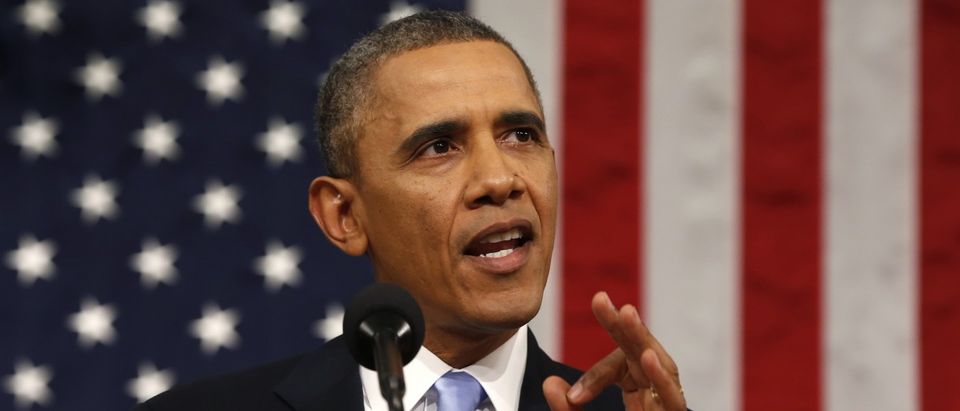President Barack Obama has done a lot to change workplace rules during his term but it was key political appointments of labor czars which drove the policy changes forward.
The president is responsible for appointing or suggesting a wide range of officials throughout the government. No political appointee officially has the title “czar,” but the term has become a popular shorthand in the media.
So-called czars are sometimes, but not always, limited to political appointees who didn’t need legislative approval. There are czars for education, law enforcement, border security, the bailouts, welfare and workplace rules among many other policy areas. These are the eight most important labor policy czars appointed by Obama.
Green Jobs Czar Van Jones
Anthony “Van” Jones is perhaps one of the current administration’s most recognizable czars. He served as Special Advisor for Green Jobs, Enterprise and Innovation at the White House Council on Environmental Quality in 2009. His area of focus intersected labor and environmental policy. He was tasked with the creation of more environmentally-friendly jobs.
He has been condemned by Commentator Glenn Beck among others for his affiliation with questionable advocacy groups like Color of Change. Beck also accused Jones of being racist against white people.
Workplace Czar Chai Feldblum
Commissioner Feldblum was appointed to serve on the Equal Employment Opportunity Commission (EEOC) in 2010. Her nomination was approved by the Senate and renewed in 2013. Judicial Watch, among others, has identified her as the workplace czar. The agency is responsible for the administration and enforcement of civil rights laws in the workplace, which has become critical in shaping labor policy across the country.
Jobs Czar Paul Volcker
Chairman Volcker was appointed by the president to serve on his Council on Jobs and Competitiveness. He was replaced by General Electric President Jeffrey Immelt in 2011. The council consists of nongovernmental experts tasked with making economic policy recommendations to the president. The main goal is to encourage job growth and competitiveness.
Volcker has since criticized the council for being a public relations tools of the White House. The meetings would even be live streamed, which Volcker felt stifled honest discussions, notes Bloomberg.
Wage Czar David Weil
Administrator David Weil was appointed to serve on the Wage and Hour Division of the Department of Labor (DOL) in 2014. He has been called the Wage Czar because of his focus on enforcing workplace wage laws. He has also played a major role in pushing policies that stop outsourcing, according to The Weekly Standard. Companies outsource for a number of reason including higher minimum wages, which cause the cost of labor to rise. Cato Institute Scholar Walter Olson notes his role adds to the extensive overhaul of industries — like franchising — that the current administration has pushed.
Economic Policy Czar Jeffrey Zients
Obama appointed Zients director of the National Economic Council in 2014 following a Senate confirmation. He replaced Gene Sperling. The council is the primary forum the president uses for considering economic policy matters. It makes recommendations and reviews how economic policy is being implemented and coordinated. Workplace rules and regulations are a key policy area for the council.
The council was formed in 1993 as the result of an executive order. The order was to help coordinate the economic policy making process. Zients, according to Bloomberg, is the only person to have multiple czar titles, including Performance Czar and Healthcare.gov Czar.
Manufacturing Czar Ron Bloom
Ron Bloom served as senior counselor for manufacturing policy from 2009 to 2011. He was tasked with working closely with the National Economic Council to help revitalize the manufacturing industry. In his role Bloom coordinating with automakers to push more environmentally-friendly cars.
Bloom also led an initiative between industry, universities, and the federal government with the purpose of subsidizing emerging technologies in manufacturing.
Stimulus Czar Alan Krueger
Chairman Krueger led the Council of Economic Adviser from 2011 to 2013 after being confirmed by the Senate. He was eventually replaced by Jason Furman. In his role he dealt with a number of workplace policy issues like minimum wages. Krueger in October 2015 warned the $15 minimum wage is too high and will stifle job growth. The $15 minimum wage is supported by a lot of democratic politicians and progressive advocacy groups. The president supports the $10.10 minimum wage despite what many others in his party think.
Pay Czar Kenneth Feinberg
Kenneth Feinberg was appointed Special Master for Executive Compensation in 2009. He has been dubbed the Pay Czar by a number of publications including ABC News. He works on compensation policy with a particular focus on executives who have taken bailout money. He was behind a proposal to cut pay for several executives at companies that received bailout funds. There were several more czars that worked on the bailouts but most had a focus on financial policy, not labor.
All content created by the Daily Caller News Foundation, an independent and nonpartisan newswire service, is available without charge to any legitimate news publisher that can provide a large audience. All republished articles must include our logo, our reporter’s byline and their DCNF affiliation. For any questions about our guidelines or partnering with us, please contact licensing@dailycallernewsfoundation.org.












